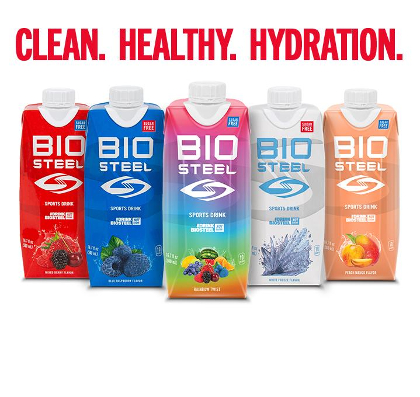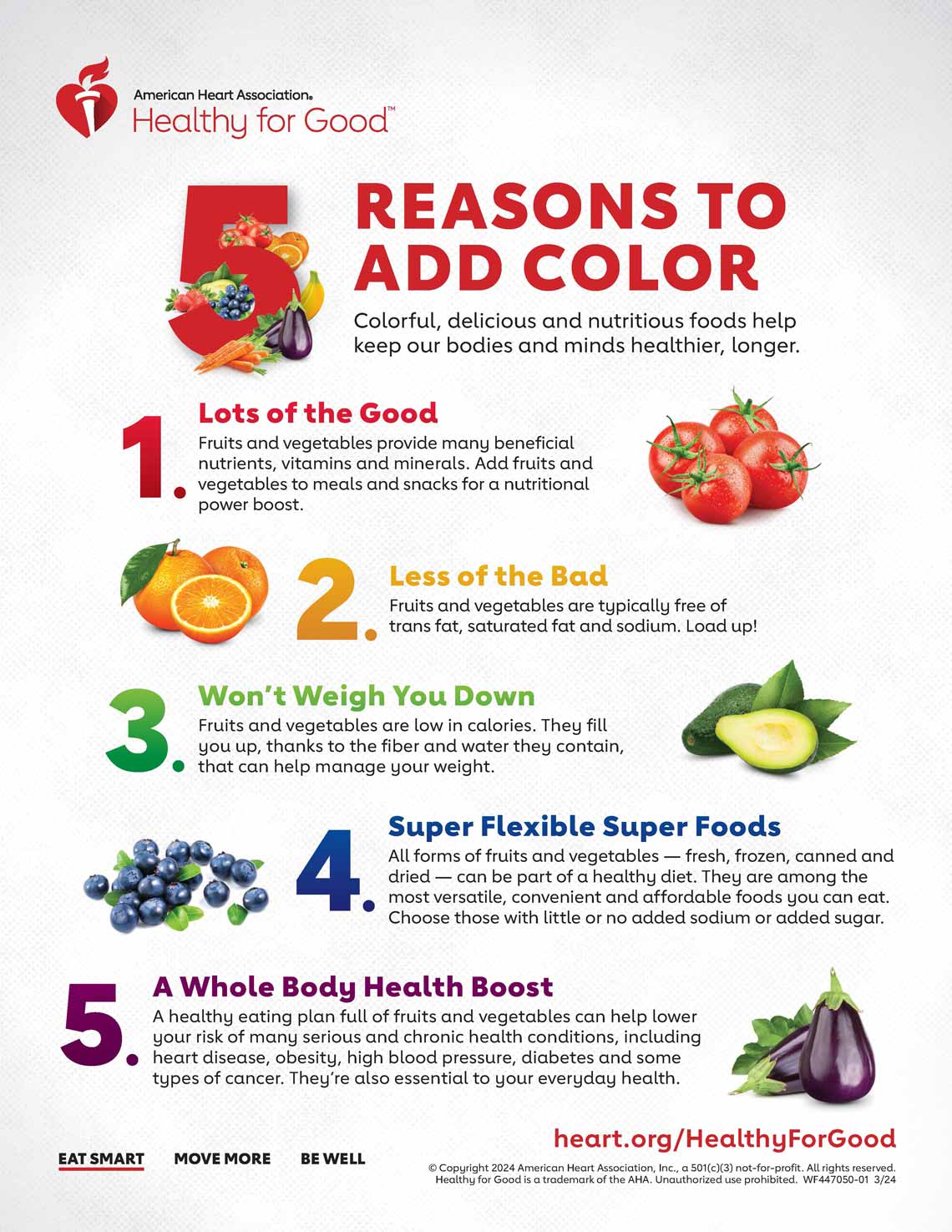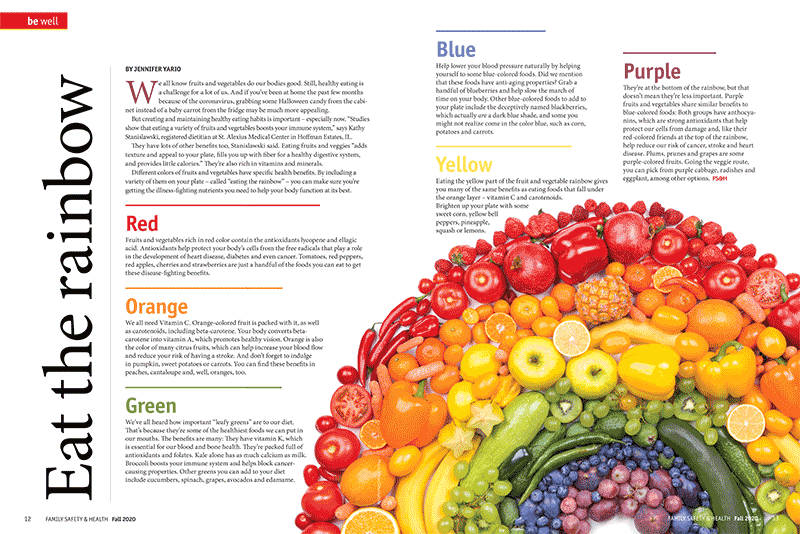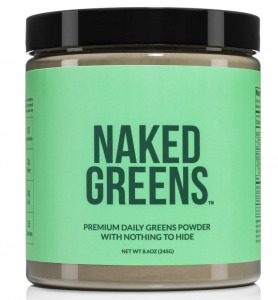Perhaps I’m dating myself here, but I have vividly fond memories of a time before the green smoothie craze. Even throughout my college days, I could move to a new dorm each year and not worry about being accosted by overzealous pyramid schemers pushing the latest Shakeology blends.
If my friends and I wanted a shake while cramming for finals, we visited the campus café to satiate our craving for chocolate or mango-flavored dopamine. Sometimes, when our sweet tooth was especially overpowering, we’d venture off campus to Baskin Robbins or Orange Julius.
I don’t remember ever having the option to add protein powder to my shakes, much less any of the other ostensibly health-promoting or immune-boosting mixtures that pop up everywhere these days. I know it seems weird and outdated now, but my peers and I back then consumed our protein and vitamins in the form of solid food.
Sure, my vegan friends had to search a little harder for tofu and beans (while I was unabashedly chomping on bacon cheeseburgers), but we all survived, and I’d dare even say we thrived.
Now, it’s almost like the baristas at my local coffee shops have turned into car or cable salesmen, eagerly peddling a laundry list of add-ons to what should be a simple latte.
I don’t want to call out any of my local businesses by name, but let me just share the menu of $2-to-$5 “boost its” from one neighborhood store: you have the fat-burning shot, the probiotic shot, the collagen shot, the aloe shot, the apple fiber shot, the BCAA shot, the prepare shot, the best defense shot, and the “nitework” shot (uh, what?). Add a couple of these to your $8 “energy beverage,” and you basically could have bought a 12-oz steak filet for the price of your 12-oz drink.
hmm should I pay my rent or buy some vitamins I will take for six days?
— Catherine Cohen (@catcohen) April 2, 2019
Not only is it not at all intuitive what’s inside of each of those shots; it’s a decision-fatigue nightmare.
But let’s put the cost and trendiness factors aside for a moment and consider the more burning question: are any of these supplement powders actually worth it?
The answer, of course, is that it depends. With so many products out there making all kinds of claims, you can’t take a one-size-fits-all approach to supplements. You can, however, sort the health benefits from the hype, the fact from the fiction.

The Problem With The Supplement Industry
Like I said, I’m not even going to attempt to decipher what’s in the eclectic shots at our neighborhood “nutrition bar.” According to a few posts I’ve seen on Nextdoor, the drink-and-powder concoctions taste pleasant enough, and that alone might be a reason to sample them.
For our purposes, let’s take a look at the main categories of supplement powders that are available on the market. We have probiotic powders, green vegetable (or “supergreen”) powders, collagen powders, and of course your popular, muscle-building protein powders.
Many of the products claim to serve multiple functions at a time, like boost your immune system, promote gut health, and increase your overall energy. Some products, like ingestible collagen, claim to improve your skin elasticity or reduce joint pain. And some even dare to make claims about fighting PMS.
View this post on Instagram
You may be tempted to take these claims at face value, but buyer beware: unlike products marketed as drugs, dietary supplements (yes, those powders you add to your smoothies) are not subject to the same oversight and regulations by the Food and Drug Administration (FDA). That means, as Dr. Steve Novella points out in his Science Based Medicine blog, that supplement manufacturers can get away with touting whatever health benefits they want, so long as they aren’t harming anyone.
For history buffs and trivia nerds, this lack of regulation stems from Congress’s 1994 Dietary Supplement Health And Education Act (DSHEA), which in turn contributed to the supplementation market’s explosion to a $37 billion industry in recent years.
I mean, let’s face it: if the FDA had time to evaluate every dietary supplement as closely as it regulates medicines, the supplements aisle would be a lot smaller at your local convenience store, and you’d probably have fewer neighbors running around selling Herbalife.
How can the supplement manufacturers get away with publishing exaggerated or downright fabricated claims, you ask? Simple: all dietary supplements are also required to publish the following disclaimer on their product labels: “These statements have not been evaluated by the Food and Drug Administration. This product is not intended to diagnose, treat, cure, or prevent any disease.”
Sounds familiar, right? You’ve probably noticed this verbiage in passing, but never paid too much attention to it, as it’s typically printed in small text at the bottom of the package. The statement is easy to gloss over, much like the terms of service you barely skim before agreeing to pay for a software service.
But I digress! The purpose of this article isn’t to shock you or incite you to protest against the FDA. But because the supplement industry is largely unregulated, it’s important to do your research before handing over your wallet. In general, if a health benefit sounds too good to be true, it probably is.
Supplementation Myths And Misconceptions
If the pandemic has taught us anything, it’s that the Internet can be a cesspool of misinformation — and the same can be applied to supplement (pseudo)science.
Recently, we’ve all been doom-scrolling more than ever, which means we’re constantly bombarded by ads and posts from social media influencers pushing a particular brand. While it’s oh-so-tempting to click through when our favorite celebrity says, “This is how I stay so youthful, healthy, and fit!,” we can protect ourselves (and our wallets!) by familiarizing ourselves with some of the common supplementation myths.
According to science-and-nutrition experts, these myths and misconceptions include the following:
Myth #1: We All Need To Consume Supplements
Reality: Actually, no!
As noted by Katherine Grote, a nurse practitioner for the Maryland Primary Care Physicians (MPCP) group, “Most adults can meet their nutritional needs with a well balanced, healthy diet.”
The American Heart Association recommends that adults emphasize a diet of foods that emphasize fruits and vegetables, whole grains, and healthy proteins, including legumes and nuts, fish, and seafood. And according to Natalie Rizzo, a registered dietitian, vegans can consume enough protein from eating plant-based foods like lentils, beans, and other legumes.
However, Rizzo added that protein supplements can be beneficial for physically active adults who need extra protein to promote muscle repair, as long as the powders are supplemental and not replacements for real foods.
Cristina Caldwell, an exercise physiologist, sports nutritionist, and coach for Fueled Coaching and Nutrition, expressed that female endurance athletes in particular, especially plant-based and post-menopausal women, sometimes do not meet their recommended daily protein intake (1.5 to 2 grams per kilogram of body weight) from food alone. In these cases, she recommends that active women supplement with a bioavailable protein source like whey protein powder, or a source like brown rice, pea protein, or sunflower seeds for those on a plant-based diet.
Still, Caldwell noted, it’s important to meet your caloric needs and “work through the rainbow with your food choices” before considering a supplement. “If you’re hitting a colorful plate most days, you are setting your body up for optimal health,” she said.
Aside from having a rigorous training schedule, there are a few other instances in which supplementation can be beneficial — or even necessary. In his Science Based Medicine article encouraging skepticism about supplements, Novella pointed out that people with certain conditions or poor access to food may require nutritional supplementation. For instance, pregnant women often need supplemental folic acid; many people, too, are deficient in vitamin D and need to supplement. But these are medical issues that you should be consulting your doctor about, not your favorite Instagram influencer who is sponsored by a particular product.
Myth #2: Supplements Are Not Harmful
The Reality: Nope again.
Just because a supplement powder boasts that it’s natural, doesn’t mean that it’s safe! Studies have shown that, given the lack of oversight by the FDA, poorly-regulated herbal supplements are often adulterated with actual drugs, contaminated with heavy metals, or substituted with filler ingredients that are not on the label.
Indeed, according to Cortney Berling, a registered dietitian and coach for Eat Well, Perform Better, protein supplements “may contain less protein, more sugar, and differing amounts of other ingredients, versus what the label claims. In fact, a nonprofit group called the Clean Label Project has investigated the amount of toxins in protein powders. [The group] found that many protein powders contain heavy metals (lead, arsenic, cadmium, and mercury), bisphenol-A (BPA, which is used to make plastic), pesticides, or other contaminants with links to cancer and other health conditions.”
Additionally, some supplements that have shown marginal benefit in specific populations — like St. John’s Wort in treating depression — have a long list of dangerous drug interactions. Even if the supplement’s claim has some merit, it’s important to research these interactions before deciding if it’s safe for you. (Again, another reason to consult with your doctor!)
Myth #3: Supplements Boost Your Immune System
The Reality: That’s a fallacy, too, for most people. According to a Harvard Health Publishing article on supplements, vitamins like Vitamin C and Zinc can promote immunity in a person who is malnourished. But if you’re already a healthy adult, using supplements to mega-dose on these vitamins won’t do you much good.
As Harvard Medical School Professor Michael Starnbach explained in the same article, the immune system in a healthy adult is already very finely tuned, and “if there were a wholesale boost to the immune system, it could trigger autoimmunity and other problems.” Plus, there is such a thing as too much of a good thing. According to the National Institutes of Health Office of Dietary Supplements (NIH ODS), the maximum daily intake of Vitamin C, which is 2,000 milligrams in adults, can cause diarrhea, nausea, and stomach cramps (yuck!).
But there is some good news, too: Gut health is an integral part of immunity, and it’s true that probiotics (good bacteria) promote that. As long as a supplement company has a reputation for transparency in reporting its ingredients, you can support your microbiome by taking a probiotic product. But once again, it’s important to focus on real food first.
According to Berling, “probiotics can be useful in general, but they are also something you can get from a balanced diet with fermented foods. Fermented foods that naturally contain probiotics — or have probiotics added to them — include yogurt, kefir, kombucha, sauerkraut, pickles, miso, tempeh, kimchi, sourdough bread, and some cheeses.”
Myth #4: Collagen Supplements Have Age-Defying Properties
The Reality: Don’t we wish? I mean, Jenifer Aniston ingests collagen peptides on a daily basis, and she definitely doesn’t look like she’s in her 50s — at least, not in photos.
As much as we’d love for this claim to be true, we did our research and sadly had to debunk the myth that consuming collagen supplements does anything to improve your skin elasticity. Sorry, gals, that’s the magic of PhotoShop and maybe even a little plastic surgery (come on, admit it, Kim K).
Okay, so no wrinkle-reducing miracles, but what about zapping away joint pain? Science Based Medicine has more bad news: despite some initial shady studies, there’s currently no persuasive scientific evidence to suggest that ingestible collagen has meaningful therapeutic effects on your arthritis.
As author Scott Gavura, a registered pharmacist, concluded: “[Collagen supplements appear] to be little more than an expensive protein supplement. If you want to supplement with collagen, my suggestion is to skip the supplements, and go for a well-marbled steak. Enjoy it, but don’t expect the steak, or any collagen supplement, to relieve your joint pain.” At least you can smother the steak in mushrooms and horseradish sauce. (Can you tell I love a good steak?)
Caldwell, our sports nutritionist, pointed out that there is one area in which ingestible collagen may be beneficial —- “and that’s in recovery from tendon/ligament injury or surgery,” she said. According to Caldwell, Dr. Keith Baar at UC Davis School of Medicine has conducted multiple studies supporting the supplementation of collagen within the context of physical therapy sessions. However, “you must combine it with vitamin C,” Caldwell noted. “If you’re taking [the collagen] at other times, you’d be much better off taking a whey-based protein, where you are getting a complete amino acid profile.”
Myth #5: All Supplement Powders Are Scams
The Reality: Okay, we’ve been examining the supplement industry through a skeptical lens, but don’t let that turn you off completely! Not all supplement powders are scams or wastes of money. Like we’ve said, even if you are a healthy adult consuming a well-rounded diet, there are times when adding some protein powder to your breakfast can’t hurt, as long as you’re already consuming a balanced diet of real foods.
If you’ve identified your goals and decided a powder supplement is, in fact, right for you, make sure you thoroughly research a product before adding it to your cart.
According to the NIH ODS, this research process for consumers should include investigating the following factors: 1) the dietary supplement label; 2) effectiveness; 3) safety and risk; and 4) quality based on good manufacturing practices (GMPs). That last one is especially important, even if it seems a little confusing at first. Basically, manufacturers that follow GMPs ensure the identity, purity, strength, and composition of dietary supplements, to prevent contamination of the product by banned or toxic substances.
That’s why, advise our experts Caldwell and Berling, it’s especially important to choose a supplement powder that has been verified by third-party testing. “This means a product has undergone testing to assure that what’s listed on the package is actually in the product,” Berling explained. The common third-party organizations that test and verify supplements include NSF International, USP, Informed Choice, and ConsumerLab — so look for one of these certification stamps on the product packaging:
So now that you’re armed with the science and ready to shop, which supplement brands do the experts recommend? Check out these third-party-verified products if you need the extra boost to release your inner badass boss:
Athletic Greens
While the swirling green smoothie on the website doesn’t look like it would taste good, I have so many runner friends who swear by these pouches and actually enjoy slurping the mixture. Even professional runners are constantly talking about how Athletic Greens have taken their training to the next level. Just add one scoop to eight ounces of water and you’ll get “75 vitamins, minerals, and whole-food sourced nutrients in one convenient daily serving.” You can make a one-time purchase or start a monthly subscription for $3.30 or less per serving! The monthly subscription even comes with a free starter kit. And since the product has been NSF Certified, you can guarantee that the company is being genuine in its claims that the powder contains no herbicides or pesticides, artificial sweeteners, GMOs, or preservatives.
BioSteel
 Don’t let the site’s animation deter you from checking out these verified supplements! According to the site, “BioSteel offers a variety of sports nutrition products that help you create and maintain the energy needed to perform at your max, recover effectively, and achieve your goals. Made with the safest, healthiest, and highest-quality ingredients, our products give you the fuel you need to win — naturally.” The protein-plus chocolate and vanilla powders actually look pretty palatable; one reviewer described them as a “healthy dessert” that “tastes just like a vanilla milkshake.” If you want to avoid whey, you can choose from the company’s plant-based powders, too. Since fluid intake is also an important part of recovery, don’t forget to check out some of the hydration mixes while you’re at it.
Don’t let the site’s animation deter you from checking out these verified supplements! According to the site, “BioSteel offers a variety of sports nutrition products that help you create and maintain the energy needed to perform at your max, recover effectively, and achieve your goals. Made with the safest, healthiest, and highest-quality ingredients, our products give you the fuel you need to win — naturally.” The protein-plus chocolate and vanilla powders actually look pretty palatable; one reviewer described them as a “healthy dessert” that “tastes just like a vanilla milkshake.” If you want to avoid whey, you can choose from the company’s plant-based powders, too. Since fluid intake is also an important part of recovery, don’t forget to check out some of the hydration mixes while you’re at it.
CYTOSPORT
 Here’s another brand that received the NSF stamp of approval, and you can grab these products from Amazon Prime! CYTOSPORT offers both a performance blend (pre-workout supplement formulated with caffeine and beta-alanine) and a protein recovery blend (to promote muscle repair). There’s even a nighttime blend (called Sleeping Giant) that contains melatonin and tryptophan to support muscle recovery during sleep. The CYTOSPORT flavors seem even more enticing than basic chocolate and vanilla: these powders come in flavors like hot chocolate, vanilla caramel, and even milk chocolate brownie (yum!). Brownie for breakfast? Yes, please!
Here’s another brand that received the NSF stamp of approval, and you can grab these products from Amazon Prime! CYTOSPORT offers both a performance blend (pre-workout supplement formulated with caffeine and beta-alanine) and a protein recovery blend (to promote muscle repair). There’s even a nighttime blend (called Sleeping Giant) that contains melatonin and tryptophan to support muscle recovery during sleep. The CYTOSPORT flavors seem even more enticing than basic chocolate and vanilla: these powders come in flavors like hot chocolate, vanilla caramel, and even milk chocolate brownie (yum!). Brownie for breakfast? Yes, please!
Naked Nutrition
You already know we love Naked Nutrition! Certified by Informed Choice, the Naked Nutrition line boasts pure flavored and unflavored proteins with only three ingredients: protein, natural flavor, and organic coconut sugar. No matter what your diet and lifestyle, Naked has a powder for you — whey-based proteins for the omnivores, pea proteins and nut butters for the herbivores, and everything in between (yes, there’s even a “fat bomb” formula for our keto friends). As a foodie who loves peanut butter even more than I love steak, I’m especially excited about the peanut butter powder (only $18.99 for a two-pound jug). Scroll down even farther and you’ll find a pumpkin spice version, too — fall flavors forever!
Dymatize
You don’t have to dig too deep on the Dymatize site to see that it stands by its science: the company is upfront right away that its powders are Informed Choice-certified and manufactured in GMP-certified facilities. As to what you’ll get when you order from Dymatize, the company specializes in whey-based protein, which is considered the most complete protein powder as it contains all nine amino acids. The powder jugs don’t look too appetizing on their own, but just wait until you click on the Dymatize recipes. I have to say, those banana peanut butter pancakes (made with two scoops of the powder) look like a way more scrumptious breakfast than a simple shake. Solid food? Check. Less soggy than IHOP? Also check. Eating like Elvis while boosting muscle recovery? Triple check. Now I just need the patience to cook.
The Bottom Line
While most of us can meet all of our nutrition needs without powders or shakes, “protein powders are a quick and easy way to refuel after a workout, and when paired with a balanced diet they can assist with recovery,” explains Berling. Just make sure to focus on whole foods first, and always look for the scientific stamp of approval.
After all, the best supplementation in the world isn’t made of powder — it’s made of science, the best granular stuff on earth.

What successes (and failures) have you had from adding supplement powders to your diet? Share your experiences in the comments!
If You Want More Wellness Research, Check Out These:








